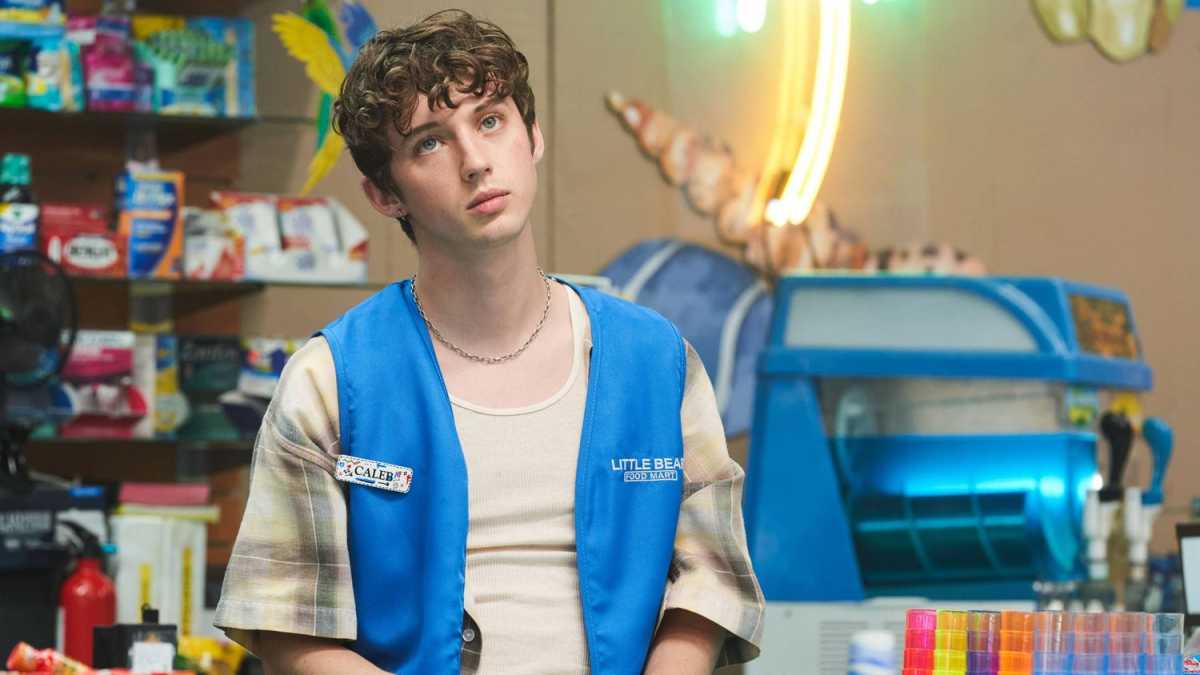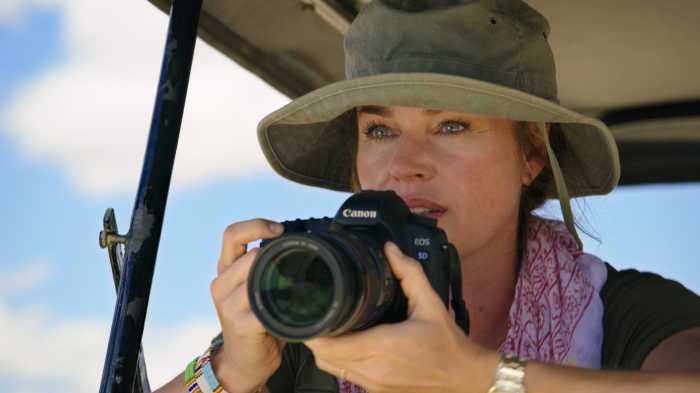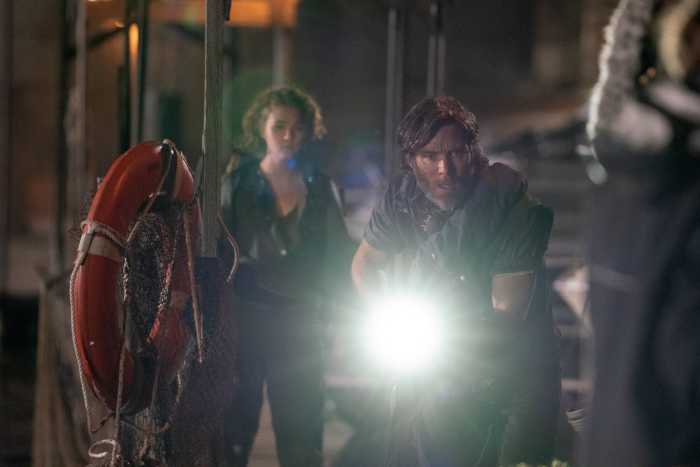The feeling of uncertainty isn’t null from any of our lives right now in the age of Covid-19. But at the time writer-director Jared Frieder was penning his first film, ‘Three Months’, that word related to different circumstances.
The film, which includes a stellar cast including internet-star turned musician/actor Troye Sivan as Caleb, follows Sivan’s teenaged self going through an uncertain time in his life—during the summer between high school and college, Caleb finds out he might have HIV, and he has to wait three months for a prognosis. It’s with help from some friends, family and a romantic connection that he’s able to make sense of it all.
The idea of HIV and AIDS holds a different meaning medically then it did back in the 80s and 90s, and Frieder wanted to make a movie that reflected just that. It’s not a death sentence, but it’s also not gone. So, why shouldn’t a movie showcase the journey of a queer teenager today (well, in 2011)?
That question is answered with Frieder’s colorful, funny and entertaining take that delivers incredible performances and a coming-of-age story that feels honest.
As Frieder says, the parallels to this film are almost scarily accurate to 2022. Sivan’s character is waiting for an answer, as most of us are today with this pandemic— just under different circumstances. There’s also the universal feeling of what it’s like to find your chosen family, and to feel different, but then learn that’s also a source of your strength… but at its heart, it’s for queer kids.
To gain more insight, Frieder sat down with Metro to discuss more on what it took to make ‘Three Months.’
Where did the idea for this story come from?
It was always my dream to make a film that I would love to watch as a little gay kid who felt a little bit too alone in the world. And to see a story that made me feel understood and celebrated. This type of a story is something I’ve always wanted, and it was based off of an experience I had waiting for test results. It just felt like a really interesting setting for a story—that time when you’re waiting in uncertainty, and even though you’re waiting you still have to love your life and fight for the things you want and the things you love and know that you’re going to be okay. I didn’t expect this theme of waiting to be as resonant as it is now as we all wait for this pandemic to be over and have uncertainty because of a virus… That’s why I picked up a pen in the first place, and I hope it resonates with people now.
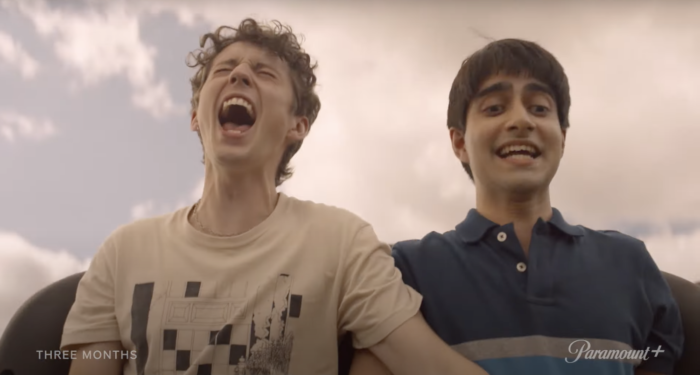
Would you say there are scenes from this film that are autobiographical or more so the themes overall?
It’s the overall theme. I am from South Florida and we shot this film in South Florida, and it was important for me—especially everything going on in Florida right now with LGBTQ rights and public schools. There’s a bill called ‘Don’t Say Gay’ that just passed the floor of the House of Representatives that makes it illegal for anyone in a public school to say “gay” out loud… That just, unfortunately, resonates with the upbringing I had there. It was important for me to set that tone there and that story there so I could show Florida from a queer perspective and make kids there especially feel like they’re okay and they’re not wrong and they’re f**king awesome. It was things like that that came from my own life, but I would say it was very loosely inspired by an emotional truth I went through, it’s not really autobiographical.
Since it’s inspired by your journey, is that why you chose to include queer icons in scenes such as Pedro Zamora?
Absolutely. For me, I am able to live the life that I am and enjoy the rights that I can as a queer man because of the generations of queer activists and people who came before me who fought for my rights and went through hell so I wouldn’t have too. It’s really important for me to honor these people and to remember them because they’re my heroes. Pedro Zamora was the first positive HIV person on television. He was the face of HIV and helped normalize it and de-stigmatize it for an entire generation when it was still something people were told they need to be afraid of. He’s just a hero and gone too soon. His same-sex commitment ceremony that aired on ‘The Real World San Fransisco’ on MTV was the first same-sex commitment ceremony ever televised. It was important for me to include that in the film, both to pay tribute to it, and because it was a way to emotionally catalyze Caleb to make up with the person who has always been there for them. It just felt right.
Were there some tropes or stigmas that you wanted to avoid? On the other hand, what were some points about HIV that you really wanted to get across on-screen?
So many of the narratives of people living with HIV are dated from the 80s and 90s. They’re amazing and they’re moving and historic, but I felt like there wasn’t enough about what it’s like living with HIV today where you have access to medical care and it’s no longer a death sentence. You can live long, happy lives and follow your dreams and live a long, beautiful, healthy existence. It was important to show that and for that to be one of the main takeaways of the film. I guess in terms of tropes, I wanted the movie to be fun and funny. That was so important for me, for the movie to feel like a blast from start to finish. Yes, it deals with serious themes and subject matter, but inherently queer people are so funny because we as a demographic use comedy and humor as a defense mechanism to overcome our trauma and to survive our obstacles…I wanted this to feel honest and true to that experience. Luckily, because it isn’t a death sentence anymore, we were able to create a comedic and fun tone to tell the story.
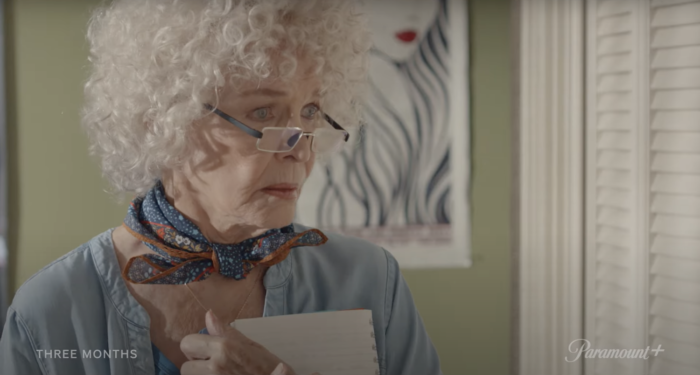
What were behind some of the casting decisions in the film? The cast is incredible, especially Troye Sivan and Ellen Burstyn as his grandmother.
Caleb is the center spoke of the film, and to me, it was always Troye to play Caleb in my brain thinking back 7-8 years ago when he was on Youtube and I had first written the script. I wrote Caleb as the kid I could have been in high school where Estha, (Viveik Kalra), his love interest is the kid I was in high school. Troye brings such honesty and naturalism to this character who at times can feel larger than life. He brings him back to earth in the most magnetic way. And Academy Award Winner Ellen Burstyn playing his grandma—I’m still pinching myself and I can’t believe it. It’s something I will take with me through all my days. Her films are the reasons I wanted to become a filmmaker: ‘Alice doesn’t live here anymore’ ‘Requiem for a Dream’ ‘The Exorcist,’ ‘The Last Picture Show,’ that’s what made me want to do what I do. To be able to work with her, and listen to her, and watch her imbue that character with a compassion and empathy… To see what her grandson is going through and then watch how it triggers her own feelings about her late son’s death. [To watch] how they have to come together to heal and find each other again. Watching her approach that with a lightness and a wonder, it’s almost surreal.
‘Three Months’ from Jared Frieder begins streaming exclusively on Paramount+ Feb. 23.



